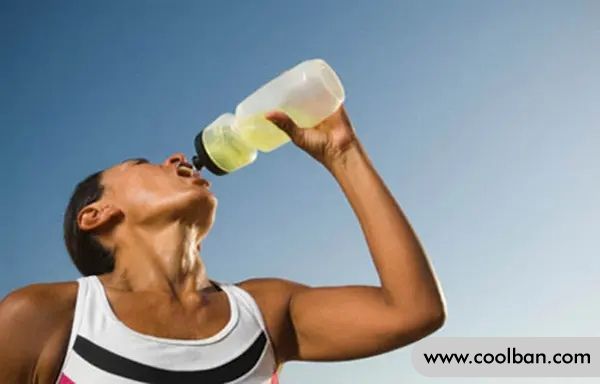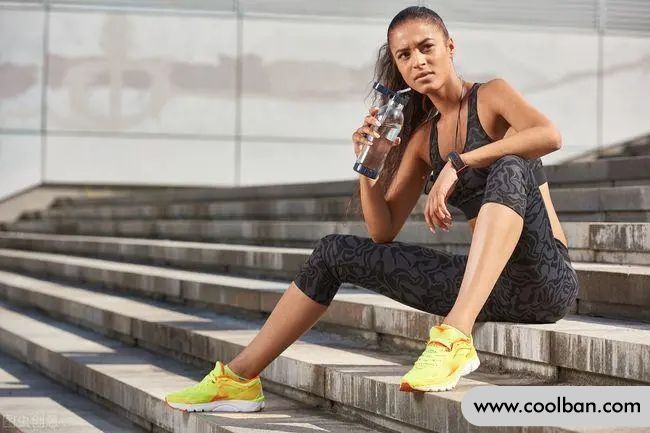How should I drink water while running?
Excessive sweating while running can dehydrate the body, leading to thirst and fatigue, which can be life-threatening in severe cases. Timely and correct hydration can not only improve the running experience, but also reduce fatigue and prolong exercise time.
One of the basic principles of fluid replacement during exercise is to make up for what is missing. If you lose too much, you need to make up, and if you lose too little, you don’t need to make up for it.

What components are in the sweat that flows out during exercise, and what are their proportions?
Exercise can lose a lot of water and electrolytes, and consume a lot of sugar
About water: Heat production increases sharply during exercise, and the body effectively dissipates heat through water evaporation, thereby preventing excessive rise in body temperature. However, sweating too much and losing too much water can easily lead to dehydration/dehydration of the body, resulting in decreased exercise capacity. During summer sports, dehydration can be as high as one liter per hour.
About electrolytes: We all know that sweat is salty, which means that with sweating, in addition to water loss, electrolytes in the body, that is, salt, will also be lost. Otherwise, sweat should be salty, so how much electrolyte is lost? From the table below, you can see When sweat is secreted from the sweat glands, most of the electrolytes are actually carried back into the body. Although sweat is salty, its salt concentration is significantly lower than that of body fluids, so hydration is the first priority. , and then add salt. Note that this is a very important fact that runners should know. The electrolytes in sweat are mainly sodium and potassium, with a small amount of magnesium and calcium, so whether a sports drink contains sodium and potassium is the main indicator to measure whether it can replenish electrolytes.
About Glycogen: Sugar is the most important energy substance for human exercise. It is mainly stored in the body in the form of glycogen. During prolonged exercise, muscles not only deplete glycogen stored in the liver, they also deplete glycogen stored in the muscles. Stabilization of blood sugar and reduction of muscle and liver glycogen levels can lead to early onset of fatigue. Of course, it is not easy to completely deplete the liver and muscle glycogen stores in the body. In theory, a maximum of 8-10 hours of exercise is required, so the phenomenon of hitting the wall in a marathon is not entirely caused by glycogen depletion.

How should I drink water when running? What water to drink?
1. The sooner you add water, electrolytes, and sugar after exercise, the better the recovery effect of your body. In the second half of the marathon, a small amount of supplementing sports drinks can also help prevent physical decline or even hitting a wall in the second half.
2. Sports drinks that meet the standards should contain sugar, sodium and potassium, and the content must also meet the requirements of national standards. Many beverages are also fortified with other nutrients such as peptides, amino acids, caffeine, taurine, inositol, and more. These substances are not necessary for rehydration during and after exercise. It's not that the more complex the ingredients, the better the hydration effect.
3. Studies have shown that if you sweat a lot during exercise, it is best to choose a drink with low osmotic pressure or isotonic pressure. Sugar concentration is the main determinant of the osmotic pressure of sports drinks. The osmotic pressure of beverages increases with increasing sugar concentration, resulting in a decrease in the body's ability to absorb water. Sports drinks contain 6-8% sugar, which can add enough energy without affecting the absorption of water. Therefore, the sugar content of sports drinks should not be too high, that is, not too sweet.
4. The research conclusion confirms that electrolytes need to be supplemented during exercise, and the absorption efficiency of sugar-sweetened beverages containing electrolytes is better than that of pure sugar-sweetened beverages. The recommended amount of sodium supplementation is not less than 42mg/100ml, and the upper limit is not more than 135mg/100ml. In addition, sports drinks should also contain a certain amount of potassium. Many sports drinks do not contain potassium, which is a major disadvantage. , while the National Sports Drink Standard requires potassium.
5. If you sweat a lot when running, sports drinks can only play a supplementary role, and the best way to replenish electrolytes is to eat every day, so the correct diet after exercise is also very important.
